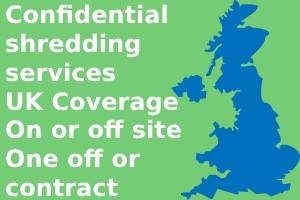The NSPCC made 510 referrals to child protection agencies in the North West last year following reports to the NSPCC Helpline of children being affected domestic abuse.
This marked a 12 per cent rise from 454 referrals in the region made during 2015/16.
Last year the charity received 4,749 contacts from UK adults concerned about violent and abusive behaviour around children – its highest ever total, up more than three quarters from 2012/13.
Some 85% of these contacts were so serious that they were referred on to other agencies, such as the police or social services.
Callers were seeking guidance from the NSPCC’s trained advisers after witnessing distressing things such as visible bruises, parents being hospitalised, children being exposed to rage and rough handling, and aggressive behaviour towards parents of young babies.
It comes after Ofsted this week called for a greater emphasis on prevention of domestic abuse and on repairing long-term damage to child victims. The NSPCC is piloting an early-intervention service called ‘Steps to Safety’ which helps families to reduce stress, manage emotions, and respond calmly to conflict - the charity’s Domestic Abuse, Recovering Together service works with survivors to help get their lives back on track.
NSPCC chief executive, Peter Wanless, said: “Domestic abuse can have a huge impact on a child’s physical and emotional wellbeing, and this sharp increase in reports shows that more people are speaking up on behalf of frightened children living in violent homes.
“We all have a part to play in tackling domestic abuse, and it’s important to pick up the phone if you’re concerned so that our trained advisers can offer non-judgemental advice, discuss possibilities and take action where necessary.
“Stepping in early and putting the child at the heart of all decisions in domestic abuse cases is vital in keeping children safe.
“It is vital that young people affected by domestic abuse have access to the right kind of support.”
NSPCC research shows that one in five children have been exposed to domestic violence, with a third of those also experiencing another form of abuse, and it is a factor in over half of serious case reviews.
One Helpline caller said: “The mother is always covered head to toe in bruises and I have seen both mother and the father screaming at each other in the street in front of the children.
“The father is very aggressive and controlling towards her and the children and I’m worried about what the two children might be experiencing in the home. I have previously seen the father handle the children very roughly and they both seem terrified of him.”
The NSPCC’s Helpline takes calls from adults who have concerns about a child, and last year 7% of all contacts were to do with domestic abuse. The Helpline is free and available 24 hours a day. To seek guidance or report a concern, call 0808 800 5000.
Children and young people who are worried about domestic abuse can call Childline on 0800 11 11.
|
|
||||||
Check Todays Deals on Ebay.co.uk Your Comments:
Custom Search

|
You are in:
UK /
Accrington / North West
Find any Town in the UK, or Use UK map Local Google MAP for Accrington Check Todays Deals On Amazon.co.uk Check Todays Deals on Ebay.co.uk 


 Be Seen - Advertise on Qlocal Corporate Sponsors
Southport Piano and Music Academy Washroom Services Maximum Grounds Maintenance Southport Garden Services Ormskirk Garden Services Sanitary Bins Nappy Bins & Waste Disposal Confidential Shredding Services Legionella Risk Testing London Washroom Services Croydon Washroom Services Hounslow Washroom Services Wandsworth Washroom Services Havering Washroom Services Sanitary Bins London Clinical Waste London General Waste London Legionella Testing London Shredding London Tatoo Waste London Preston Bird Control Blackpool Bird Control
UK, Local Online News Community, Forums, Chats, For Sale, Classified, Offers, Vouchers, Events, Motors Sale, Property For Sale Rent, Jobs, Hotels, Taxi, Restaurants, Pubs, Clubs, Pictures, Sports, Charities, Lost Found
accrington,
accrington News,
|
|||||





 Reply With Quote
Reply With Quote